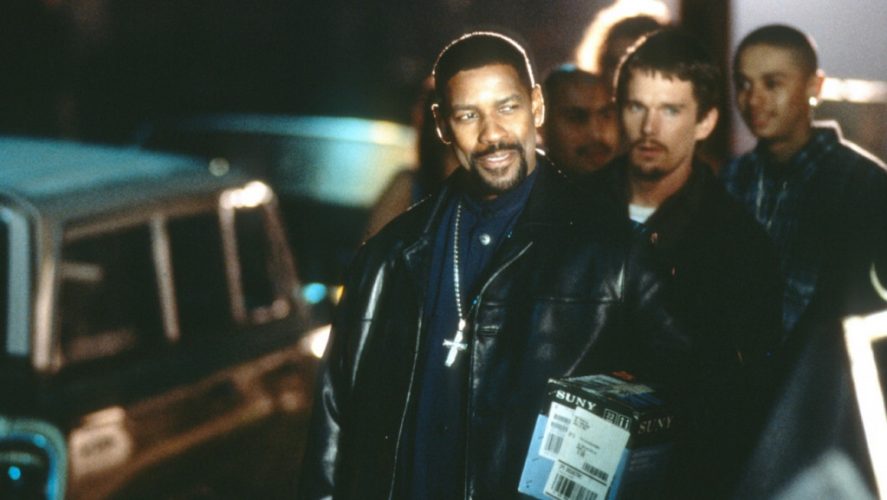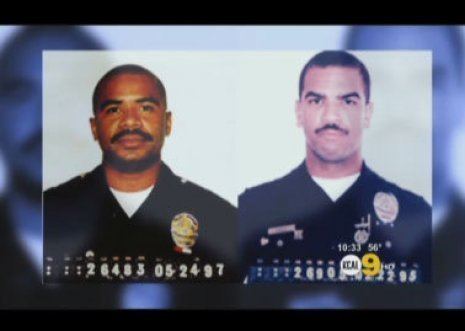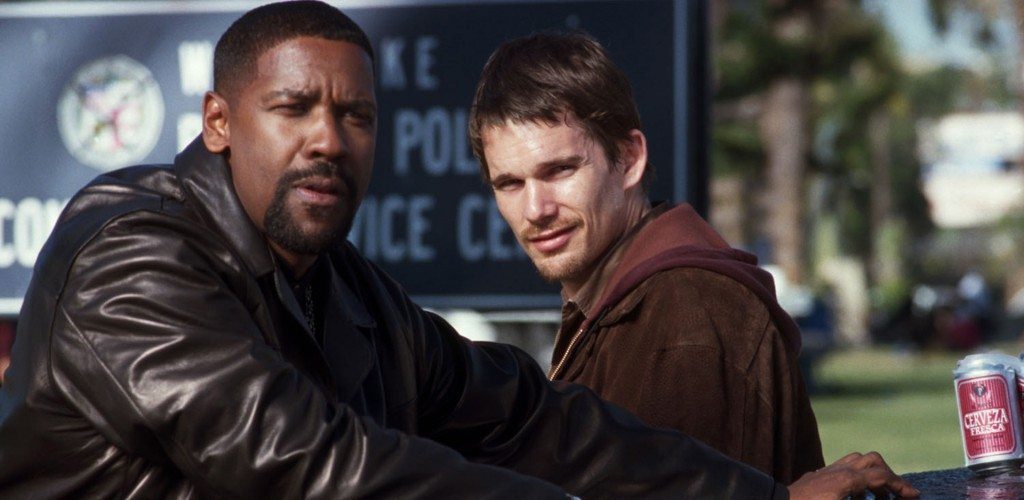‘Training Day’ is a gripping take on the nexus between law enforcement agencies and the street gangs of Los Angeles. The narrative delves deep into a corrupt cop who trains his subordinate in the ways of dealing with gang-related crimes. Alonzo Harris bends the laws for his own benefit, and for him, the end justifies the means. Jake Hoyt, his trainee, is an upright cop but is caught up in his superior’s dastardly machinations.
The film’s gritty aesthetics give it a realistic outlook, and director Antoine Fuqua’s no-holds-barred approach takes us closer to the harsh truth. So we decided to undertake our own investigations into the veracity of the narrative. If you are equally eager to know the truth, we have got your back!
Is Training Day Based on a True Story?
No, ‘Training Day’ is not based on a true story. The script was written by David Ayer in 1995, a few years before the Rampart scandal, associated with the LAPD, broke out. Having said this, however, the director did mention that the scandal fuelled the completion of the movie. Consequently, the corruption we see on screen has been stimulated by the ordeal to some extent. The characters depicted in the film are reminiscent of real-life cops who were found to have used unethical means to reap huge benefits.

Moreover, the nitty-gritty of the story is also, in part, inspired by Ayer’s own upbringing in South Central Los Angeles. His knowledge of life on the streets has translated into visual imagery reminiscent of films like ‘Chinatown,’ ‘The French Connection, and ‘Serpico.’ Now, speaking of the protagonist, Denzel Washington essays the character of Alonzo Harris, and the actor was heavily inspired by a former cop, Rafael Perez. In 1995, Perez had joined the Rampart CRASH (Community Resources Against Street Hoodlums) unit, an anti-gang program implemented by the LAPD years ago.
According to his own accounts, he started stealing drug money at the behest of his partner, Nino Durden. As power and greed caught up to Perez, he colluded with the street gangs and started peddling cocaine. In 1998, he was arrested for stealing cocaine from the police evidence locker. A year later, he cooperated with investigating agencies and turned against his former associates in hopes of reducing his sentence. In February 2000, Perez was indicted on cocaine theft charges and sentenced to five years in prison.
However, he was released on parole since he had served a substantial time in prison and was credited for good behavior. Perez reviewed multiple arrests log which detailed alleged police misconduct. Many bad arrests involved Perez and his partner, Nino Durden. Investigators believed that Perez was not completely truthful in his testimonies and even manipulated some facts. Lead Detective Brian Tyndall even called Perez “a con.”

But Perez was not the only connecting link between the police and the street gangs. The Rampart scandal broke out after a series of crimes were conducted that involved police misconduct. On November 6, 1997, robbers stole cash worth $722,000 from a Bank of America branch in Los Angeles. Officers found out that David Mack, an LAPD officer, was the mastermind.
He was allegedly in cahoots with the Mob Piru Bloods, a gang that had links with Death Row Records. And Rafael Perez was a former partner of Mack. Perez was also linked to the death of rapper Christopher Wallace who went by The Notorious B.I.G. All these developments eventually blew the lid on police corruption within the LAPD. We see many similar events in the film as well, thereby understanding the complexities of the situation.
Antoine Fuqua’s own childhood in the Pittsburgh neighborhood brought him close to some bad cops. He had to face the abominable behavior of a few police officials during his youth, which impacted him. These experiences enabled him to handle the dubious character of Alonzo Harris and bring out the subtle nuances. Fuqua also enlisted members of drug gangs like Crips and Bloods as extras in the film. This helped him access some locations in Los Angeles that weren’t necessarily open to filming and productions.
Fuqua created a story that reflects real-life happenings, even depicting an environment that contains a semblance to reality. The characters are composites of real-life people who were a part of the sinister collusion between some corrupt police officials and the criminals at the turn of the century. Interestingly, the true extent of the Rampart scandal is yet to be ascertained as many cases of police misconduct remain unsolved to this day. Evidently, even though the story of ‘Training Day’ was conceived before the scandal broke out, it has incorporated some elements masterfully.
Read More: Best Cop Movies


You must be logged in to post a comment.